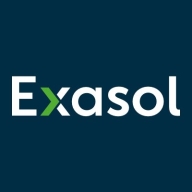

Teradata and Exasol compete in the data warehousing market, each excelling in unique areas. While Teradata is preferred for its pricing and support, Exasol is favored for its advanced features that justify the investment.
Features: Teradata offers scalable architecture and comprehensive analytics, making it ideal for large enterprises seeking high performance and reliability. Its broad integration capabilities and customization options are also notable. Exasol offers in-memory technology delivering exceptional speed, especially for real-time data processing. Its ability to handle complex queries easily positions it as a leader in high-speed analytics.
Room for Improvement: Teradata could enhance its platform by simplifying its complex setup processes, improving its learning curve, and offering better intuitive user interfaces. Exasol might benefit from expanding its deployment options beyond primarily cloud-based solutions, addressing cost issues for smaller businesses, and integrating more robust security features.
Ease of Deployment and Customer Service: Teradata provides various deployment options, including on-premises and cloud solutions, backed by strong customer service support. Exasol, with its cloud-based model, ensures quick and efficient deployments, praised for their flexibility and speed, allowing businesses to operate swiftly.
Pricing and ROI: Teradata is seen as having a competitive pricing strategy, offering potentially lower initial setup costs. However, Exasol provides a compelling ROI due to its superior processing speed and performance, which might justify its higher initial expenses over time. Choosing between them involves weighing initial costs against long-term gains from enhanced analytics efficiency and speed.


Exasol is a high-performance data warehouse solution that accelerates BI and reporting features. Its speed, stability, and self-tuning queries make it valuable, and it doesn't require a database administrator. It's a backend database for Tableau dashboards, resulting in faster report loading times and increased efficiency in querying data.
Exasol's high performance allows users to connect insights and fire queries instead of looking at cached dashboards. It has impressive aggregation capabilities that help calculate metrics on the fly based on user-selected filters.
Teradata is a scalable data analytics platform designed to meet enterprise demands for large-scale data management and processing, focusing on performance, scalability, and security for complex query executions.
As a leading data warehousing solution, Teradata integrates advanced analytics enabling organizations to derive insights from massive datasets. It supports high-volume data workloads with its architecture optimized for analytical queries. Users benefit from its robust scalability, allowing seamless expansion as data grows. Teradata's SQL engine is compatible with a wide range of data types, ensuring flexibility in data analysis. With advanced security measures, it protects sensitive data across various environments, providing peace of mind to users handling critical information.
What are the most important features of Teradata?Teradata is widely used in industries like finance, telecommunications, and healthcare, where data-driven decisions are critical. Companies leverage its robust analytics capabilities to enhance customer experiences, streamline operations, and ensure compliance with regulatory requirements. In these sectors, quick access to data insights can significantly impact competitive advantage.
We monitor all Relational Databases Tools reviews to prevent fraudulent reviews and keep review quality high. We do not post reviews by company employees or direct competitors. We validate each review for authenticity via cross-reference with LinkedIn, and personal follow-up with the reviewer when necessary.